Mediation is a form of alternative dispute resolution often used in construction disputes, especially those of a lower value. It is important to understand the Mediation process, however, as it is a more flexible ADR method, where ultimately the parties have control of the outcome, the stages can vary.
Start Mediation
Mediation is increasingly used in construction disputes to reduce costs in resolving issues, whilst maintaining relationships between parties.
Many construction contracts will include a mediation clause, meaning that Mediation should be used in the first instance of dispute resolution. Alternatively, the parties have agreed to Mediation or the court has recommended it. If the parties have not already agreed to Mediate, one of the parties will need to contact the other and ask them if they are willing to use a Mediation process to settle their dispute. This is known as the Referral Letter and will need to include all details of the parties, the type of contract in place and a brief description of the dispute.
Select a Mediator/Representative
Once the parties have agreed to Mediate the construction dispute, a Mediator needs to be selected. It is also a good idea to instruct a representative to take you through the complete Mediation process, who has authority to agree a settlement.
Arbicon have over 40 years’ experience in dealing with construction disputes and are able to act as your Mediation representative, or provide you with an RICS Accredited Mediator, with a vast understanding of the construction industry, construction contracts and construction law.
Acting as your representative, our expert team will prepare your case for Mediation, seek agreement to Mediation proceedings and instigate the process on your behalf. We will attend any meetings, as well as finalise the settlement agreement to fully resolve the matter once the Mediation has taken place. Find out more about our Mediation in construction disputes service.
Mediation Agreement
A Mediation agreement is circulated to the parties, which includes terms and conditions on which the parties have agreed to Mediate, confidentiality provisions and Mediation costs, including the Mediator’s fees. The agreement needs to be signed by the parties before further steps are taken.
A timetable for the mediation process will be set, including an agreed date for the Mediation meeting.
Prepare for Mediation
Prior to the Mediation, parties should prepare a case summary with a written outline of the dispute, together with any supporting documents which may assist the Mediator in understanding the issue. If any thoughts on settlement have already been made, then these should also be given to the Mediator. Having a Mediator that understands construction contracts and construction law can assist with the Mediation process being successful.
Once the Mediator has received the case summary, each party will have the opportunity to discuss key issues with the Mediator, usually via a telephone call.
Each party’s representative will prepare a strategy, including a draft settlement agreement which is taken to the Mediation, saving time during the meeting itself.
Mediation Meeting
As Mediation is a confidential process, the Mediation meeting is private and held on a without prejudice basis. Usually, the parties and their representatives are in attendance, if anyone else wishes to attend then the parties must have given their permission, together with the consent of the Mediator.
The Mediation usually starts with a joint session, with both parties, their representatives, and the Mediator. Although Mediations are traditionally done face-to-face, it has become more common for online Mediations to take place, removing the need and cost for a venue, allowing each party to be in their own comfortable setting.
Each party will give their opening statement, setting out their position. Private discussions are likely to occur between the Mediator and each party, whereby negotiations are made, and the Mediator will try and assist the parties to reach a settlement. Sessions between the parties’ representatives to try and agree certain points are also normal. The Mediator will not impose a decision, this is down to the parties, one of the key advantages of Mediation.
Settlement
In most cases a settlement is successfully achieved, and the Mediation process is concluded with a settlement agreement, where the parties record all the terms of the settlement in writing. It is advisable for the parties to sign a settlement agreement, and this is most effective at the Mediation itself to bind the parties and their decision.
If a settlement is not agreed, the Mediation process concludes at the end of the meeting. The Mediator will encourage parties to discuss why an agreement could not be reached, and whether any remaining issues in dispute could be resolved through other ADR methods.
Mediation is most successful if all parties have agreed to come to a settlement and resolve the dispute, with all parties gaining from the process.
If you would like advice on Mediation for your construction dispute, please use our contact form or call one of our offices.

